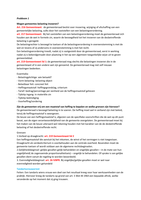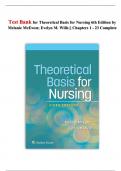Introduction:
- E.T WAS NOT FOUNDED BY ANY PERSON OR GROUP, MANY STREAMS OF THOUGHT
CONTRIBUTED TO IT. FROM RELIGION TO PHILOSOPHY, TO PSYCHOLOGY, TO
PSYCHIATRY.
- This is more of a ‘philosophical approach’ than it is a psychological one.
- Three Main role players in this theory= Irvin Yalom, Viktor Frankl and Rollo May
- Viktor Frankl- Was a prisoner in the Nazi concentration camps. His theory was birthed
from his own experiences of extreme suffering and hardships. To this end, he wrote a
compelling book called ‘Man’s search for meaning.
- Frankl believed that the essence of being human lies in searching for meaning and
purpose.
- Rollo May- Contracted TB and stayed for two years in a sanatorium- this lead him to
writing and reading about the existential dimensions of anxiety and he wrote a book
‘the meaning of anxiety’ developed logotherapy- therapy through meaning
- Irvin Yalom- wrote a textbook on Existential Psychotherapy, titled Existential
Psychotherapy. He is a big believer in that in order to become an effective therapist,
you need to have sufficiently interrogated your own existential issues before you are
able to assist clients.
- Existential Approach is more of a way of thinking and an attitude about
psychotherapy than it is a particular style of practicing psychotherapy.
- It concerns itself with deep questions about the nature of human beings and how
they make sense of life in the context of uncertainty and suffering.
- Rejects the deterministic view of human nature which is posited by radical
behaviourism and classical psychoanalysis.
- Psychoanalysis sees the person is driven primarily by unconscious forces, irrational
drives and past events.
- Radical behaviourism sees people as primarily determined by socio-cultural
conditioning.
- Existential therapists maintain that we reserve the right to choose how we respond to
life events.
- The basic premise of existential therapy is that we are not victims of circumstance,
because to a large extent, we are what we choose to be.
- Most of the thinking of existential movement was influenced by a number of
philosophers and writers
Common questions/sources of existential angst for clients:
- “Who am I” - “Will I die alone?”
- “I will die.” - “How am I going to get to where I
- “What does it all mean?” want to be in my life?”
Some Existential Philosophical beliefs …
1
, - NB: Unless you, as a future therapist have grappled with personal issues such as the
meaning of life, death and dying, anxiety and guilt, freedom and responsibility, and so
on, you will not be able to assist their future clients in their exploration of these
themes. You are encouraged to critically examine your own values, attitudes,
conflicts, and personal lives.
- The only certainty we have in life is death.
- Discomfort in life is necessary to our becoming human.
- Becoming human is a project, and our task is not so much to discover who we are as
to create ourselves.
- He who has a why to live for, can bear with almost any how.
- That which doesn’t kill me, makes me stronger.
Key Concepts:
A View of Human Nature:
- Balance between recognising the tragic limits of human existence versus the
possibilities and opportunities of human life.
- Life is about engaging the dilemma’s on contemporary life.
- The significance of our existence is never fixed once and for all; rather we continually
recreate ourselves through our project.
- Being a person implies that we are discovering and making sense of our existence. We
continually question ourselves, others and the world.
- There are six basic dimensions of the human condition.
▪ The capacity for self-awareness
▪ The tension between freedom and responsibility
▪ The creation for an identity and establishing meaningful relationships
▪ The search for meaning, purpose and values of life
▪ Accepting anxiety as a condition of living
▪ The awareness of death and nonbeing
Position 1: The Capacity for Self-Awareness:
- The greater our awareness, the greater our possibilities for freedom. We are both
free and limited
- We can reflect and make choices because we are capable of self-awareness
- Expanding our awareness in realizing that:
▪ Relatedness
▪ Awareness of our finite nature (time is limited) and proneness to loneliness,
meaninglessness, emptiness, guilt and isolation
▪ We have the potential, the choice, to act or not to act – even in difficult
situations
▪ Meaning is not automatic – we must seek it
▪ The decision to expand self-awareness is fundamental to human growth
Proposition 1 in therapy – Areas of Emerging Awareness:
2




